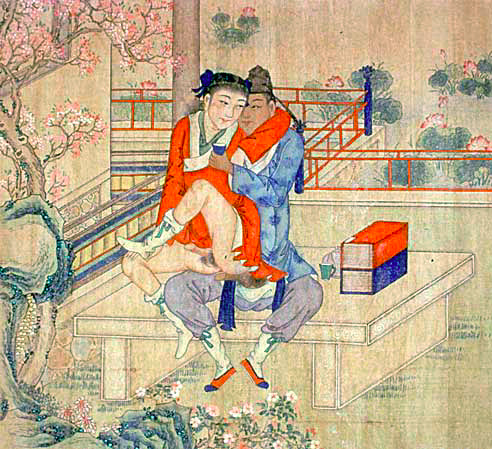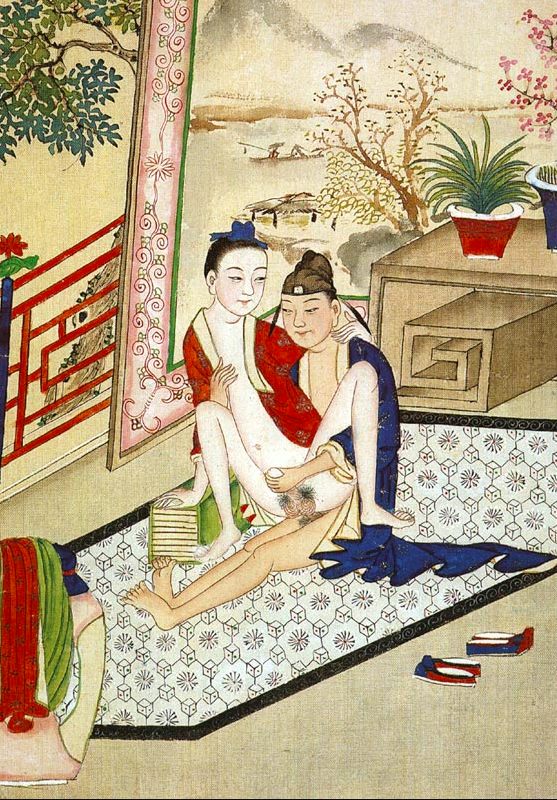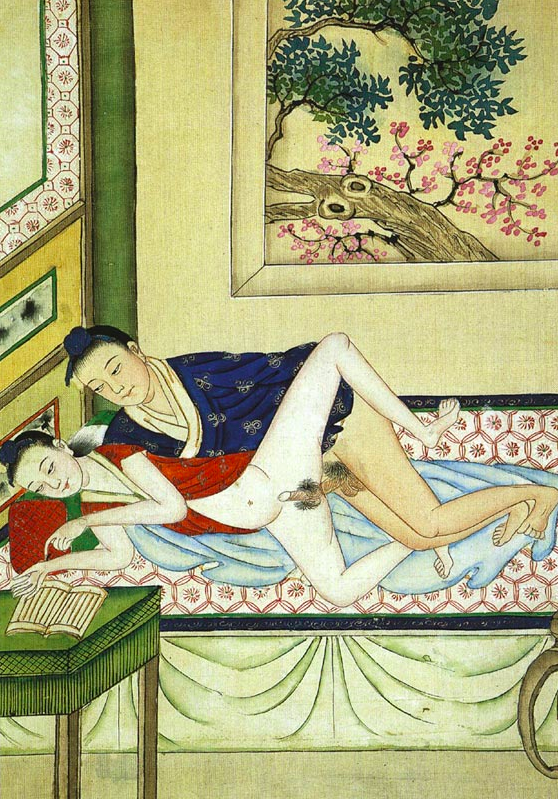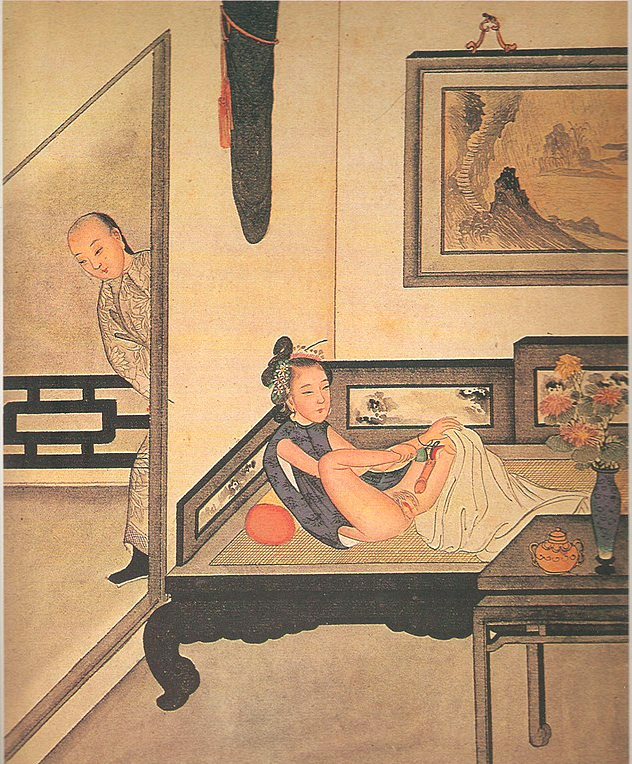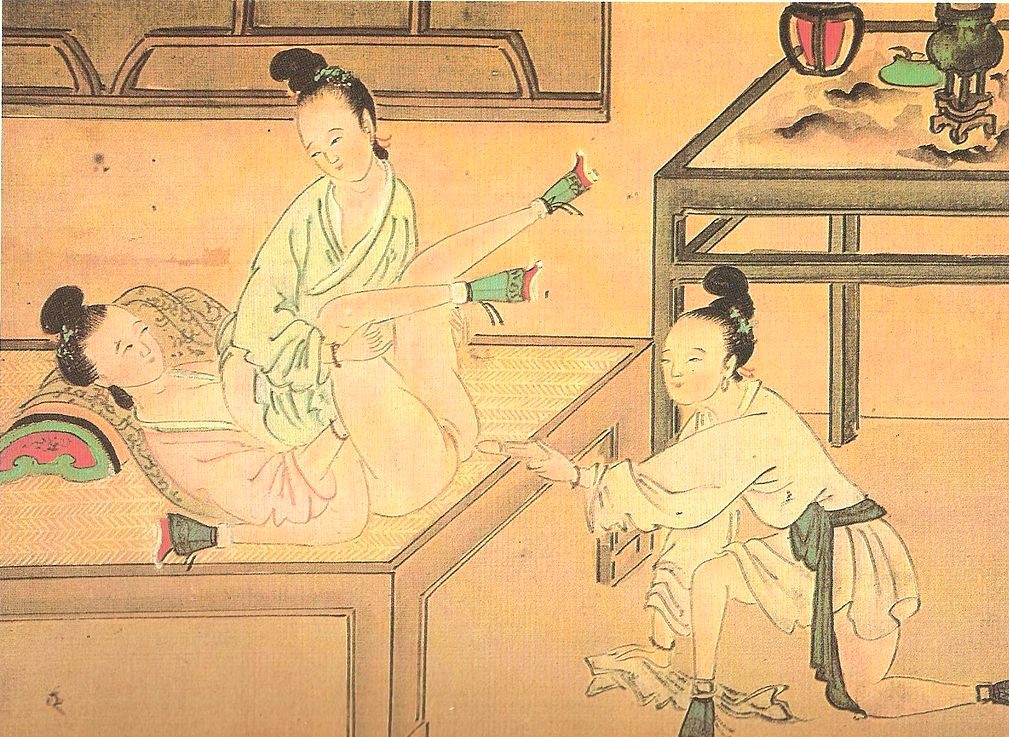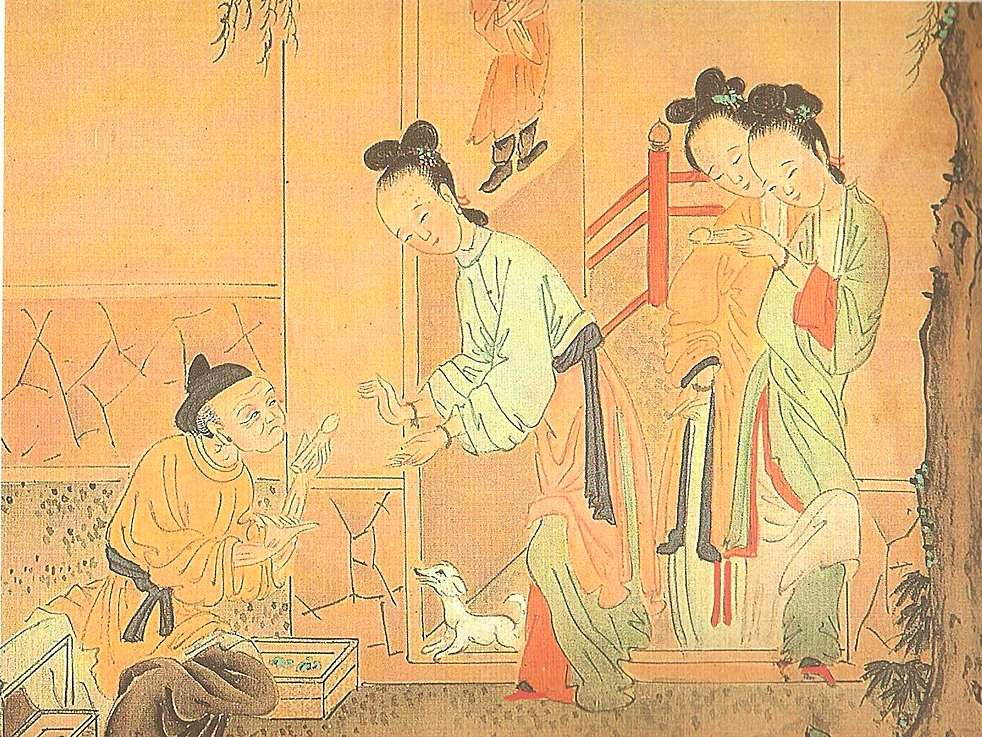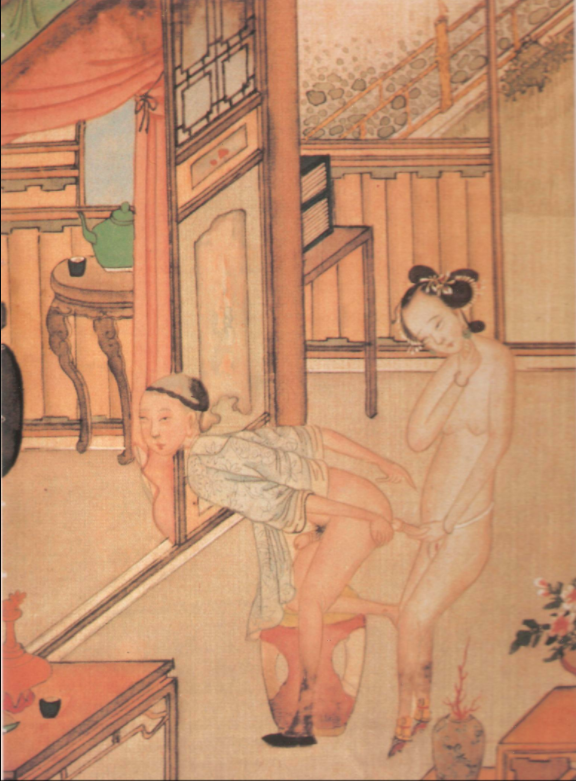3. Mei Ai Hold Your Hand? Homosexuality in Imperial China
/On this week’s episode, we discussed Confucianism, Daoism, and their importance for understanding Imperial Chinese views of sex and sexuality, which contributed to the long literary tradition of male homosexuality. Like last episode, it was a context heavy episode, but we still brought plenty of tragic, romantic, and even some humorous stories of men and their lovers that shaped how Imperial Chinese men who had romantic and sexual relationships with other men understood themselves. Stories like Emperor Ai and the ‘passion of the cut sleeve,’ Mizi Xia and the ‘bitten peach’, and Long Yang and the ‘previously caught fish.’ If the shared pillow tree didn’t make you believe that these people weren’t as straight as some people might think, then maybe the shared eating of the women in harems did!
How do we know about these folks?
Despite the People’s Republic of China attempting to erase the long history of male and female homosexuality in China---dating all the way back to the Yellow Emperor of the 27th century BCE!---many, many records still survive. In the early dynasties, our knowledge of male homosexuality stems mainly from court records, many of which had separate sections for emperors and their male favorites. We also have a poetric tradition that spans almost all of Imperial Chinese history, though it isn’t always easy to suss out the gender of the person spoken about due to unique linguistic features in China. In the 16th-17th centuries, we finally start to get fiction that represents both male and female homosexuality in the form of books, short stories, and plays. Plus, lots of paintings! They’re also quite erotic so….many of the images below are NSFW. Maybe look at these when you’re in your apartment, not your cubicle!
Timeline of Chinese Dynasties
Shang Dynasty (ca. 1600-1050 BCE)
Zhou Dynasty (ca 1050-256 BCE)
Qin Dynasty (221-206 BCE)
Han Dynasty (206 BCE-220 CE)
Three Kingdoms and Six Dynasties Period (220-589 CE)
Sui Dynasty (581-618 CE)
Tang Dynasty (618-906 CE)
Five Dynasties Period (907-960 CE)
Liao Dynasty (907-1125 CE)
Song Dynasty (960-1279 CE)
Yan Dynasty (1279-1368 CE)
Ming Dynasty (1368-1644 CE)
Qing Dynasty (1644-1911 CE)
People and Poems we Didn’t have Time to Include
Wu Zao (1799-1862 CE, Qing Dynasty)
One of the greatest female and lesbian poets of the Qing dynasty and Chinese history. The daughter of a merchant and wife of a merchant named Huang, neither her father nor her husband were bookish or inclined toward creating great works of art. No one knows how she learned to read, write, play, music, and paint, because these were not usual skills for women in the merchant class to have learned. Instead of conforming to the expected lack of fine arts skills, she became one of the best writers, composers, and poets of her time. One of her operas, “The Image in Disguise,” regards the tale of a woman who wears men’s clothes, paints, and laments the constriction of gender roles for limiting her ability to use her skills (self-portrait anyone?). In her middle age, she became a Daoist (or Buddhist, depending on the source) nun.
Throughout her life, she had many romantic and sexual relationships with women and wrote several erotic poems to female courtesans, like this one:
FOR THE COURTESAN CH'ING LIN
To the tune “The Love of the Immortals”
On your slender body
your jade and coral girdle ornaments chime
like those of a celestial companion
come from the Green Jade City of Heaven.
One smile from you when we meet,
and I become speechless and forget every word.
For too long you have gathered flowers,
and leaned against the bamboos,
your green sleeves growing cold
in your deserted valley;
I can visualize you all alone
a girl harboring her cryptic thoughts.
You glow like a perfumed lamp
in the gathering shadows.
We play wine games
and recite each other poems.
Then you sing “Remembering South of the River”
with its heart-breaking verses.
We both are talents who paint our eyebrows.
Unconventional as I am,
I want to possess the promised heart of a beautiful woman like you.
It is spring.
Vast mists cover the Five Lakes.
My dear, let me buy you a red painted boat
and carry you away.
And another: A BITTER RAIN FALLS IN MY GARDEN
A bitter rain falls in my garden
in this autumn that is ending.
I barely have vague poetic feelings
that I cannot gather together.
They disappear among the dark clouds
and the reddish leaves.
After the yellow fall of the day
the cold moon wakes up
amid the melancholy fog.
I will not lower the blinds of mottled bamboo
from its silver hook.
Tonight my dream will follow the wind,
enduring the cold,
towards the jade tower of your divine body.
(Note the “jade tower” metaphor, like the use of ‘jade’ as a way to describe beautiful men in the 3 Kingdoms and 6 Dynasties period.)
More information about her can be found in Women Poets of China by Kenneth Rexroth and Ling Chung.
Bai Juyi (772-846 CE, Tang Dynasty)
Portrait of Bai Juyi by Chen Hongshou of the Ming Dynasty.
We mentioned Bai Juyi in our discussion but didn’t have time to include the long, romantic poems he wrote to many of his fellow officials. Regarding happy nights with a fellow official, he wrote:
We are fond of the moon, and nights sleep side by side;
We love the mountains and on clear days view together.
When one of his ‘friends’ sent him a bolt of cloth, he wrote the following poem:
Thousand li (of distance), friend’s heart cordial;
one strand, fragrant silk purple resplendent.
Breaking the seal, it glistens
with a rose hue of the sun at eve---
the pattern fills in the width
of a breeze arriving on autumnal waters.
About to cut it to make a mattress,
pitying the breaking of the leaves;
about to cut it to make a bag,
pitying the dividing of the flowers.
It is better to sew it,
making a coverlet of joined delight;
I think of you as if I'm with you,
day or night.
To his friend and fellow official Qian Hui, he write the following poem about a frosty winter night they spent together:
Night Deep---the memorial draft finished;
mist and moon intense piercing cold.
About to lie down, I warm the remnant last of the wine;
we face before the lamp and drink.
Drawing up the green silk coverlets,
placing our pillows side by side;
like spending more than a hundred nights,
to sleep together with you here.
Bai Juyi and his friend Yuan Zhen made what they called the “Green Mountain pact” to retire as Daoist monks once they’d gained enough money. Unfortunately, Zhen’s untimely death prevented them from fulfilling their pact, inspiring the following melancholy poem:
My body is harassed by closeness to the Throne,
my heart bound by fame and righteousness.
Nights of moon and times of blossoms,
seldom encountering delights of the wine cup.
There was only Gentlemen Yuan
who came in leisure and drank with me.
He took my hand and sang drunkenly
in carefree spirits, and at times we laughed and joked.
This year you were appointed Censor;
two months ago you went to Loyang.
Since parting I still have not smiled,
and dust fills my wine cask and ladle.
A scented breeze---night fragrance ended;
cassias and rain---the last blossoms fall.
Autumn’s intent, one sighing solitude,
our beings apart, both lonely and forlorn.
How much more so, aging in the bright sun;
we have repudiated our Green Mountain pact.
Who knows my heart as I think of you?
It’s a captive falcon and a caged crane.
These and more poems and information about Bai Juyi (and others!) can be found in Passions of the Cut Sleeve by Bret Hinsch.
If you want to learn more about these folks, as well as the history homosexuality in Imperial China, check out our full list of sources and further reading below!
Online Articles:
Comrades of the Cut Sleeve: Male Homosexuality in China (full PDF)
Tu’Er Shen, patron deity of homosexual love
Books:
Passions of the Cut Sleeve by Bret Hinsch
The Culture of Sex in Ancient China by Paul Rakita Goldin
Sex in China by Fang Fu Ruan
Sexual Life in Ancient China by Robert Hans Van Gulik
Sapphistries by Leila J. Rupp
Carton, Adrian. "Desire and Same-Sex Intimacies in Asia". ay Life and Culture: A World History ed. Robert Aldrich
NSFW Erotic Art of the Ming and Ching Dynasties
Male lovers, note the 'active' participant has a darker skin tone than the 'passive' one.
Male lovers, once again the skin tone distinguishes the partners.
Gretchen's personal favorite because of the guy reading a book while he's having sex.
Woman peeping on male lovers, just like the wife of Shan Tao in the "Seven Sages of the Bamboo Grove" story.
Man peeping on a woman masturbating with a dildo tied to her foot. Woman's gotta do what she's gotta do to get pleasure!
Woman peeping on another woman masturbating. (we told you peeping was a thing in erotic art.)
Two women using a dildo.
Three women using a dildo.
Old woman selling dildos to young women (omg this is the best. #goals).
Woman using a strap-on with a man, just like the funny story we told of the couple who didn't know what to do on their wedding night and the other couple who wanted the woman to penetrate the man!
man with two women.
All these and more can be found at the Wikimedia Commons Chinese Erotic Art page.


